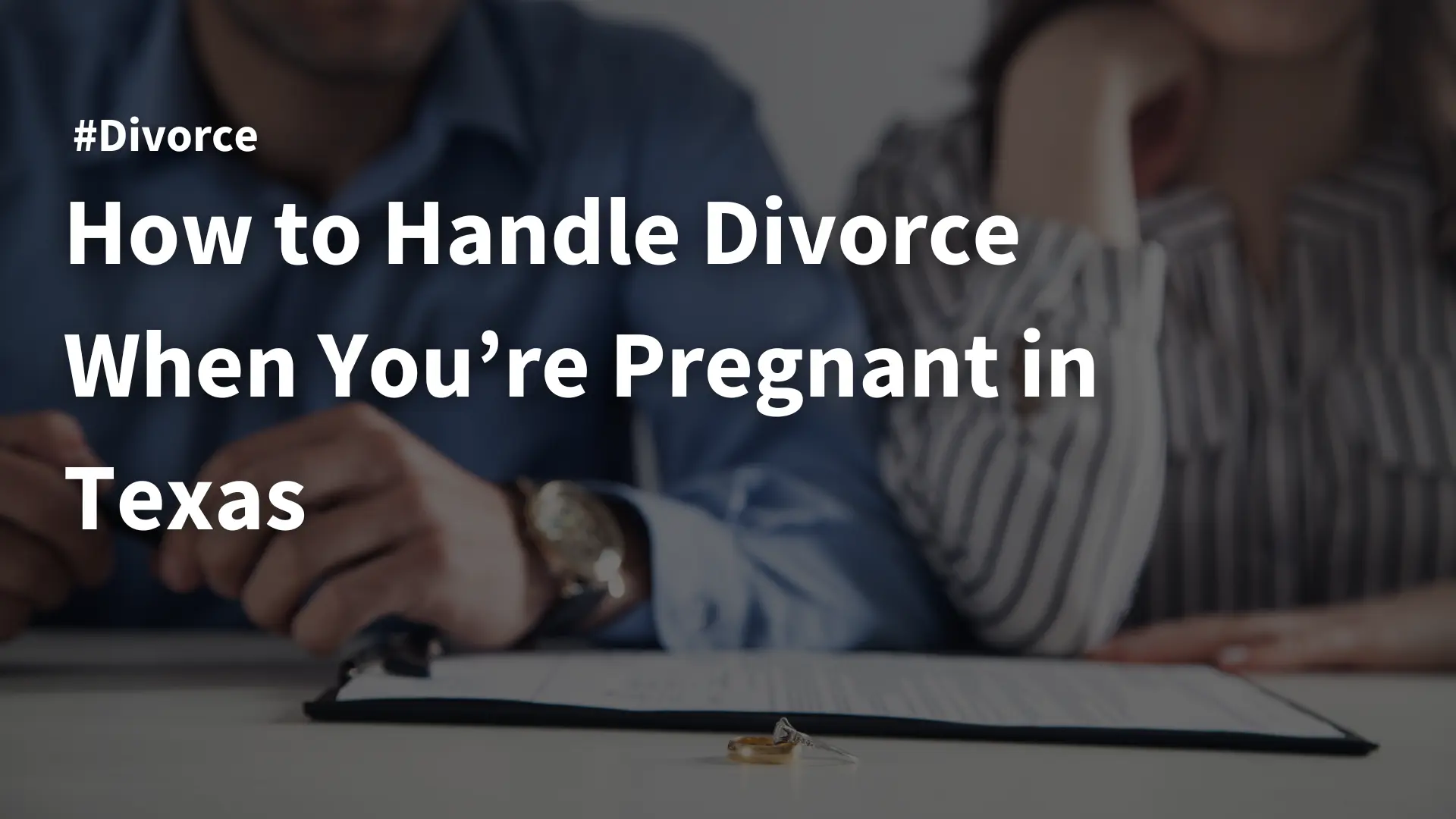A woman is never more vulnerable than during and immediately after pregnancy. Navigating divorce while pregnant in Texas adds another layer of stress and complexity to an already emotionally challenging situation. Divorce during pregnancy involves unique legal complications. From questions about paternity and custody to concerns over financial support and medical decisions, expectant mothers and fathers may feel uncertain about their rights and responsibilities—especially when facing something as complex as divorce during pregnancy.
Understanding how Texas law handles pregnancy and divorce can help you make informed decisions. It can also empower you to protect your well-being and prepare for long-distance co-parenting.
Can You File for Divorce While Pregnant?
Can you file for divorce while pregnant in Texas? The answer is complicated. Technically, yes, you can file for divorce while pregnant. However, the court will not finalize your divorce until the baby is born. So while you can file, you may wait longer to finalize your divorce, extending the time to resolve your situation.
A court may wait to finalize a divorce to ensure that paternity, custody, child support calculations, and visitation rights get established. You don’t need to wait to start the process. However, individuals should prepare for legal matters involving the child to be handled more completely once the baby arrives.
Waiting may seem inconvenient when you are ready to move forward with your life. However, the court can issue temporary orders to address immediate needs and concerns.
Establishing Paternity Before the Child Is Born
There are several ways to establish paternity in Texas. Paternity refers to the legal relationship between a father and his child. First, couples should understand that in Texas, when a child is born to a married couple, the husband is always presumed to be the father.
In some situations, a married couple seeking a divorce may have questions over the paternity of a child. These questions are common in situations potentially involving adultery or infidelity. The “husband is the father presumption” also stands, even when the married couple has been living apart but is not legally divorced. When parents disagree over paternity, it may be necessary to establish the identity of the actual father of a child.
Individuals can file a paternity petition in court. The court can then order a paternity test through the Office of the Attorney General, or OAG, to determine the biological father’s identity with 99 percent accuracy. While prenatal paternity tests are available, the court may opt to conduct DNA testing after the baby is born.
There are other ways to establish paternity, such as an acknowledgement of paternity, but these methods generally apply to unwed parents.
Temporary Orders During the Divorce Process
It can feel frustrating to have to wait to finalize a divorce. While it may take longer to resolve your situation, there are things the court can do before the child’s birth. When you file for divorce in Texas, the court can issue temporary orders to address urgent matters while your case is pending. These court orders help establish structure. Temporary custody orders also protect both parents during this challenging and stressful time. Orders the court can issue at this time include:
- Use of property, such as the family home or vehicles
- Payment of bills and debts
- Restraining orders to prevent harassment or asset depletion
- Temporary child custody and visitation schedules
- Temporary child or spousal support
Temporary orders are not permanent. They only remain in effect until the divorce is finalized or the court modifies them. Requesting temporary orders is often one of the first steps after filing for divorce. During a formal hearing, the court can evaluate your situation and issue orders that help protect you and your growing family.
Child Custody Considerations While Pregnant
You may not be able to finalize custody arrangements until the baby is born and the divorce is finalized, but that doesn’t prevent you from getting a jump start on planning. Starting the process early and understanding child custody considerations while you’re pregnant is key.
If you’re pregnant and going through a divorce, it’s vital to understand how the courts approach custody. Texas courts recognize the value in allowing both parents to build positive relationships with a child. In child custody situations, a judge uses the “best interests of the child” standard to help them arrive at custody arrangements that benefit the child’s physical and emotional development.
Factors a judge can consider in divorce and child custody cases include:
- Parents’ ability to provide a stable environment
- Parents’ ability to foster a positive relationship between the child and the other parent
- Parents’ ability to act in their child’s best interests
- History of domestic violence or abuse
While most states refer to custody in terms of legal and physical custody, Texas uses different language. In Texas, a managing conservator is the parent responsible for making vital decisions on behalf of a child. These decisions involve medical care, education, and legal matters. Possessory conservatorship is the equivalent of physical custody. The possessory conservator is the parent responsible for the child’s primary residence or living situation. Depending on a judge’s discretion, conservatorship arrangements can be sole or joint.
Since custody rights can’t be officially granted before the birth, most courts wait until the child arrives to issue formal custody orders. However, you and your partner can work with attorneys or mediators to create a parenting plan before the baby arrives. This plan can also serve as the basis for future custody arrangements if a judge approves it.
An Austin Divorce Attorney Is Ready to Help You
Pregnancy can be a joyful experience. It can also be stressful, emotional, and challenging. Adding a divorce into the mix can cause extra physical, mental, and financial strain. At Smith & Bledsoe Family Law in Texas, our experienced family law lawyers can help you navigate challenging situations and prepare you for a post-birth divorce.
Contact our Austin office online or call (512) 277-3166 to set up a confidential consultation. We want to provide you with the support and resources you need to move forward with your life and be the best parent you can be.

